Hey there, fellow figure! Have you ever discovered yourself questioning, “Why is my infant hitting others?” If so, you’re really not on my own. It’s one of these parenting moments which could leave you feeling stressed, annoyed, and maybe even a little embarrassed—in particular if it occurs in the front of other humans. But here’s the coolest information: this conduct is high-quality not unusual among babies, and there are strong reasons at the back of it. Even higher? There are realistic, workable approaches to help your little one circulate past it.
Picture this: my pal Sarah (don’t fear, I changed her call for privacy) has a two-and-a-half-year-old daughter named Emma. A few months in the past, Sarah started out noticing Emma smacking other children all through playdates. At first, she brushed it off as a quirky little one phase—you understand, the sort we all wish passes quick. But when the hitting saved happening, Sarah felt stuck. She tried everything from gentle scolding to distraction, however not anything clicked. Does that sound familiar? If it does, stick with me. We’re going to unpack why babies hit others and share a few strategies that sincerely work.
Understanding Why Toddlers Hit Others
Toddlers are the cutest, right? Those chubby cheeks, that infinite curiosity—but permit’s be actual, they also can be tiny tornadoes of emotion. Hitting is one of these behaviors that pops up out of nowhere, leaving you questioning in which your sweet angel went. So, what’s driving your infant to hit others? Let’s dig into the maximum not unusual motives.
1. Frustration: The Struggle of Big Feelings, Small Words
Imagine having one million emotions swirling internal you however simplest a handful of phrases to express them. That’s lifestyles for a toddler. When they are able to’t say, “I’m disillusioned due to the fact I desired the blue crayon,” hitting becomes their go-to. It’s now not due to the fact they’re imply—it’s simply their manner of shouting, “Help, I’m crushed!” For instance, if every other child snags their toy, they might lash out because they don’t but recognize a way to negotiate or ask for it back.
2. Attention-Seeking: Hitting Gets a Reaction
Toddlers are clever little detectives. They figure out pretty speedy that hitting others gets your attention—speedy. Whether it’s a yelp from a playmate or a “No, don’t try this!” from you, it’s a reaction. And to a infant, any interest is right interest. Think about it: if they’re feeling overlooked whilst you’re talking to any other parent, a short swat might be their way of pronouncing, “Hey, observe me!”
3. Curiosity: Testing the World, One Smack at a Time
Sometimes, hitting isn’t even about anger or attention—it’s natural experimentation. Toddlers are natural scientists, constantly testing cause and effect. “What takes place if I hit this youngster? Oh, they cry? Interesting!” It’s now not malicious; it’s just their manner of getting to know how the world works. Emma, Sarah’s daughter, once hit a friend just to see what might occur. No anger, no tears from her—just curiosity in action.
4. Lack of Empathy: They Don’t Get the Hurt Yet
Here’s a large one: toddlers don’t fully grasp that hitting hurts others. Empathy is a ability that develops over time, and at this age, they’re still working on it. They might see someone cry after a success and not join it to their movements. It’s now not that they don’t care—they simply don’t understand but. This is definitely regular, but it can make little one hitting others sense more tricky to address.
5. Extra Factors: Sensory Overload and Monkey-See, Monkey-Do
There are more than one wildcard reasons too. Some infants hit once they’re beaten—like if a room is just too noisy or crowded. It’s their way of coping with sensory overload. Others may select it up from watching someone else, like a sibling or maybe a character on TV. If they see hitting in action, they might assume, “Cool, I’ll attempt that!” It’s all a part of how they examine and procedure their environment.
How to Stop Your Toddler from Hitting Others

Okay, so we’ve were given the “why” found out—now allow’s address the “how.” Stopping your infant from hitting others isn’t approximately quick fixes; it’s about staying power, consistency, and teaching them higher ways to handle their emotions. Ready to dive into some techniques? Let’s move!
1. Spot the Triggers: What’s Sparking the Hitting?
First step: play detective. What’s placing off your infant’s hitting? Are they tired after skipping a sleep? Hungry due to the fact snack time were given behind schedule? Maybe they’re overstimulated from a loud playgroup. Once you pinpoint the triggers, you may head them off. For instance, Sarah noticed Emma’s hitting spiked while she changed into exhausted, so she commenced scheduling shorter playdates with downtime built in. It didn’t stop every hit, however it made a dent.
2. Prevent It Before It Starts: Set Them Up for Success
Prevention beats response any day. Here’s the way to hold infant hitting others from taking place inside the first location:
- Lay Down Simple Rules: Keep it clean and brief: “We don’t hit. It hurts.” Repeat it flippantly and regularly.
- Show Gentle Hands: Demonstrate a way to contact softly. Say, “See? We pat like this,” and guide their hand.
- Catch Them Being Good: When they share or play nicely, heap at the praise. “Wow, you’re so type on your pal!”
- Name the Feelings: Help them label feelings. “You’re mad because they took your truck, proper? Let’s say ‘mine’ rather.”
These little steps build a foundation so hitting doesn’t feel like their most effective alternative.
3. Handle Hitting Calmly: Your Reaction Sets the Tone
When your toddler does hit, the way you reply topics—loads. Freaking out or yelling can enhance matters, so hold your cool. Here’s a recreation plan:
- Step In Fast: Stop the hitting right away. Gently pull them faraway from the state of affairs if wanted.
- Reinforce Gentle Touch: Say, “We use soft hands,” and display them again.
- Offer Alternatives: If they’re mad, suggest hitting a pillow rather. “Let’s take it out on this!”
- Take a Break: If it keeps occurring, a quick timeout can reset the vibe—just a minute or .
Sarah started out doing this with Emma, staying calm and redirecting her to a stuffed animal when she were given frustrated. It wasn’t instant magic, but over the years, Emma started out catching on.
4. Lead by using Example: They’re Watching You
Toddlers mimic the entirety. If they see you staying calm and fixing issues with words, they’ll pick up on that. Skip physical punishment—it confuses them about what’s ok. Instead, let them see you being patient and sort. Say things like, “I’m disillusioned, so I’m going to take a deep breath,” and watch them start to reproduction you.
5. Build Empathy: Teach Them to Feel for Others
Empathy doesn’t come obviously but, but you can nurture it. Try those ideas:
- Chat About Emotions: Point out emotions every day. “You’re excited to play! How do you watched your pal feels?”
- Read Together: Grab books like The Feelings Book by using Todd Parr. They’re fun and spark first rate talks.
- Praise Kindness: When they percentage or assist, say, “That made your friend so happy!”
- Show Care in Action: Let them see you supporting others. “I’m giving Daddy a hug due to the fact he’s tired.”
Over time, they’ll start connecting their actions to how others feel—large development!
6. Know When to Get Help: It’s Okay to Ask
For maximum children, hitting others is a phase they outgrow with steerage. But if it’s constant, extreme, or paired with different purple flags—like intense tantrums or withdrawal—it is probably worth a talk together with your pediatrician. They can rule out things like sensory troubles or advocate a baby behavior professional. There’s no disgrace in it; you’re just being a proactive determine.
Balancing the Ups and Downs of Toddler Hitting

Here’s the component: infant hitting others isn’t all awful information. Sure, it’s annoying, however it’s additionally a sign they’re developing—testing obstacles, learning feelings, and identifying social stuff. The danger? If it is going unchecked, it can emerge as a habit, or worse, pressure their little friendships. The gain? With your help, they’ll study talents like self-control and empathy that’ll serve them for lifestyles. It’s all approximately finding that stability—addressing it without overreacting.
Conclusion: You’ve Got This, Even When It’s Tough
So, there you’ve got it—a deep dive into why your infant might be hitting others and the way to guide them thru it. It’s now not always clean, I understand. Some days, you’ll experience like a parenting rockstar; others, you’ll wonder in case you’re getting via. But here’s the truth: with consistent attempt and an entire lot of love, you can help your infant change hitting for more healthy ways to explicit themselves.
Every toddler’s unique, so tweak these guidelines to fit your kiddo. Stay affected person, keep your cool, and don’t be afraid to lean on sources or execs in case you want a hand. You’re doing extraordinary, even when it doesn’t sense adore it. Got a story or trick that worked for you? Drop it within the remarks—I’d love to hear! And if this helped, share it with every other figure who’s in the little one-hitting trenches.
For greater exquisite insights, test out those sources:
Thanks for hanging out with me—here’s to calmer days ahead!

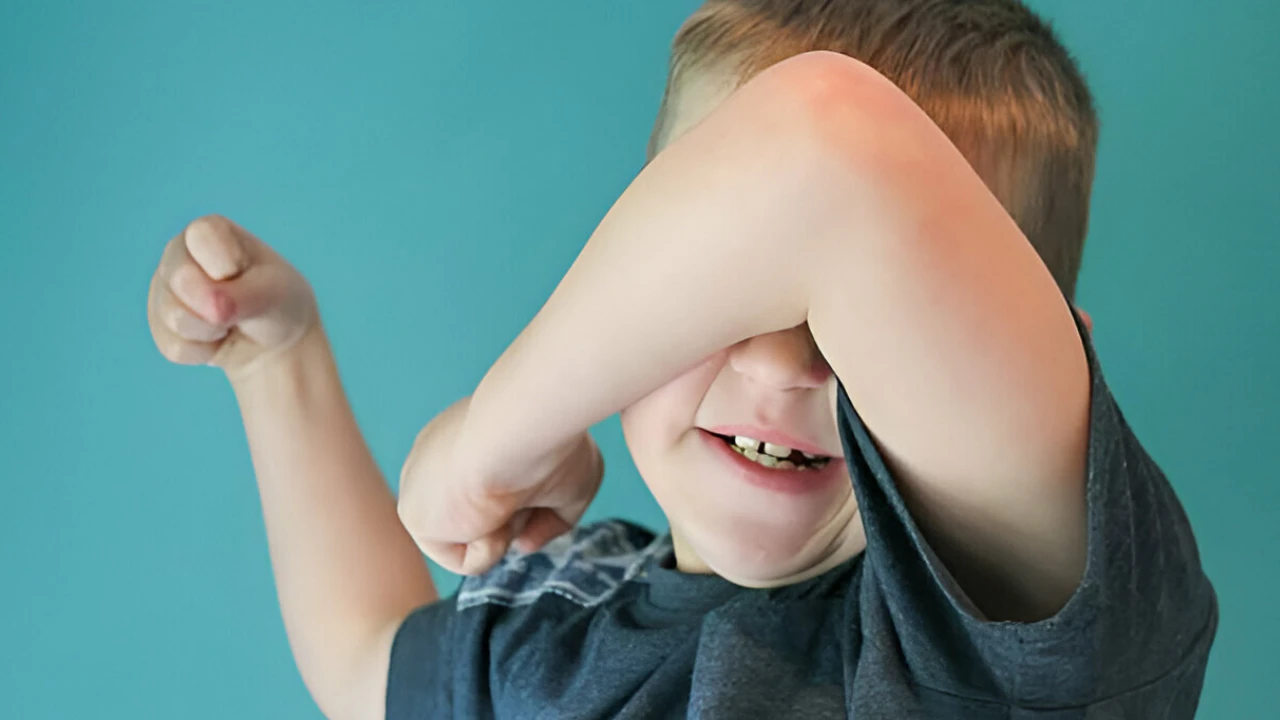

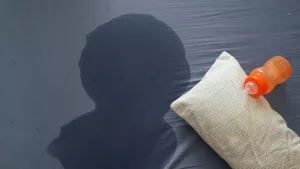


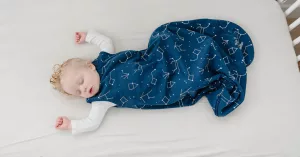
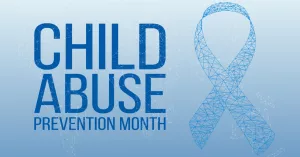
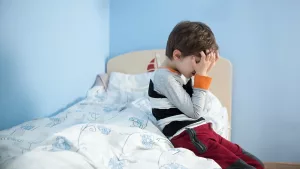
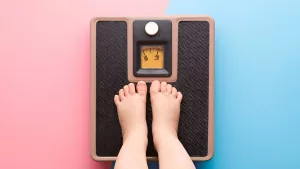





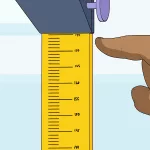









Leave a Reply
You must be logged in to post a comment.